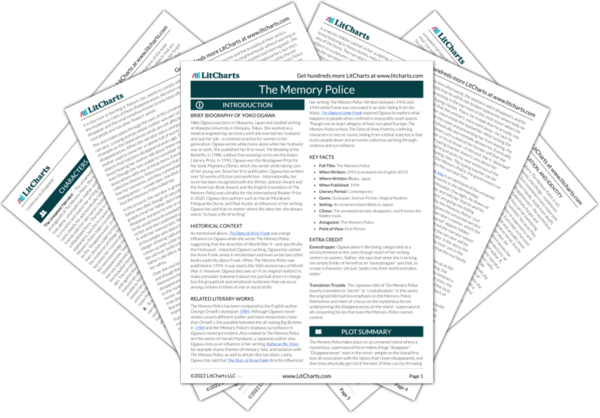The fact that the Inuis won’t tell the narrator where they’re going again shows how much people on the island fear the Memory Police and speaks again to the government’s possible methods of surveillance. Everything about the way the Memory Police operate is so unknown that people decide not to take any risks. The narrator cutting the young boy’s nails is a tender gesture, showing how even in times of war or authoritarianism, everyday activities—like sharing a drink or nail-clipping—still go on. It is also significant that the Inuis “vanish” when they leave: this suggests that, when people go into hiding, it is almost like they’ve died, because they are lost to the community and the people around them.
